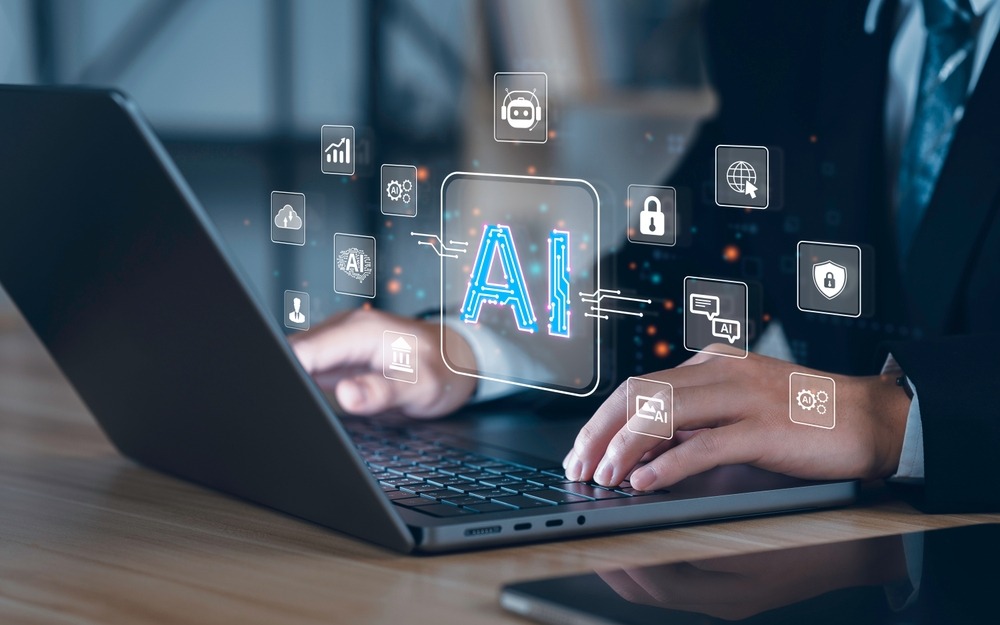
Welcome to the era where science fiction meets reality – a time when machines possess the ability to think, learn, and even mimic human intelligence. Yes, we are talking about Artificial Intelligence (AI), the revolutionary force that is reshaping our world as we know it. From self-driving cars to virtual assistants and personalized recommendations, AI has seamlessly integrated into our daily lives. But have you ever wondered why this technology holds such immense significance for our future? Join us on an exhilarating journey as we unveil the power of Artificial Intelligence and explore why it has become absolutely crucial in shaping the destiny of humanity.
Introduction to Artificial Intelligence
Artificial intelligence (AI) is a process of programming computers to make decisions for themselves. This technology is already being used in a variety of ways, such as helping doctors diagnose diseases and assisting financial analysts predict stock market trends.
AI has the potential to revolutionize our world in many other ways as well. For example, it could be used to develop autonomous vehicles, create more personalized experiences online, and even help us find new sources of energy.
AI will likely have a profound impact on the economy as well. Some experts believe that AI will lead to the creation of entirely new industries and job types. It could also help us make better use of existing resources, leading to increased efficiency and productivity.
AI is crucial for our future because it has the potential to change the world in unimaginable ways. We must continue to invest in this technology and learn how to harness its power if we want to stay ahead of the competition and make sure that our future is bright.
What is Artificial Intelligence?
Artificial intelligence (AI) is a term that refers to the ability of a computer or machine to learn and perform tasks that would normally require human intelligence, such as visual perception, natural language processing, and decision-making.
The history of AI research can be traced back to the 1950s, when a group of scientists at Dartmouth College organized a conference on the topic. Since then, AI has become an active area of research in both academia and industry, with significant advances made in areas such as machine learning, natural language processing, and robotics.
Despite these advances, AI remains a controversial topic. Some people believe that AI will lead to the singularity, or the point at which machines surpass human intelligence and usher in an era of rapid technological change that will transform humanity in ways that we cannot currently imagine. Others believe that AI poses a threat to our jobs and even our existence.
Regardless of where you stand on the issue, there is no doubt that AI is going to have a profound impact on our future. In this blog post, we will explore some of the ways in which AI is already changing our world and why it is crucial for our future.
The Benefits of AI
AI has the potential to transform our lives in numerous ways. Here are just a few of the ways AI can benefit us:
1. Automation of tedious and time-consuming tasks
2. Improvement of decision-making processes
3. Increased efficiency and productivity
4. Enhanced accuracy and precision
5. Greater insight into data
Current Uses of AI
Artificial intelligence is already being used in a number of ways that are benefiting society. For example, AI is being used to develop more effective and efficient methods of farming, which is helping to address the issue of food security. Additionally, AI is being used in medical research to develop new treatments for diseases and to create personalized care plans for patients. Moreover, AI is playing an increasingly important role in transportation, as it is being used to develop self-driving cars and other autonomous vehicles. AI is also being used to help businesses automate tasks and make better decisions.
Potential Applications of AI in the Future
AI has the potential to revolutionize many different industries and aspects of our lives. Here are some potential applications of AI in the future:
-Healthcare: AI can be used to diagnose diseases, predict patient outcomes, and provide personalized treatment plans.
-Transportation: AI can be used to optimize traffic flow, reduce accidents, and improve public transportation.
-Finance: AI can be used to identify financial risks, automate financial processes, and provide personalized financial advice.
-Education: AI can be used to customize learning experiences, identify learning gaps, and provide real-time feedback.
-Retail: AI can be used to personalize shopping experiences, recommend products, and automate customer service.
Ethical Issues with AI
As artificial intelligence (AI) increasingly becomes a part of our lives, it is important to consider the ethical implications of this technology. There are many potential risks associated with AI, including the possibility of biased algorithms, the loss of privacy, and the creation of “superintelligent” machines that could pose a threat to humanity.
We must be proactive in addressing these concerns and ensuring that AI is developed ethically. This means creating strong regulations and oversight to ensure that AI technologies are used responsibly. It also means educating ourselves and others about the risks associated with AI so that we can make informed decisions about its use.
Only by taking these precautions can we fully harness the power of AI and ensure that it is used for good.
Conclusion
In conclusion, artificial intelligence is an incredible tool that will have a profoundly positive effect on the future of humanity. It can revolutionize industries, automate manual labor and tedious processes, and help us all to make better decisions more quickly. As we continue to explore and develop AI technologies, it is important that we remain mindful of the potential risks associated with them as well as their profound capabilities for good. With its incredible power, AI can be used to make our world a better place for everyone if handled responsibly.


